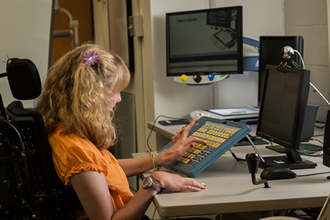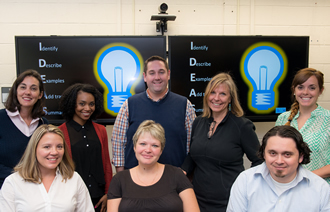PhD Students Funding
The Helen A. Kellar Institute for Human disAbility provides support for Ph.D. students’ travel and technology as needed to meet their goals for research and professional growth. In addition, the Helen Kellar Scholarship is available for Ph.D. students within the College of Education and Human Development whose research is focused on individuals with disabilities (see scholarships). Faculty in the Division of Special Education and disAbility Research at George Mason support doctoral students with multiple opportunities for developing leadership skills in research, teaching, and service, and have received grants that also provide support for students’ tuition, travel, and technology needs.
NEW OPPORTUNITIES
The following supports are available for upcoming doctoral students with primary specialization in special education:
10-hour and/or 20-hour GRA grant funded position(s) on the federally funded project aiming to improve essay writing for struggling writers with and without disabilities through motivating educational games
Supplemental packages including a laptop, wireless keyboard and mouse, headset, tablet, travel stipend up to $2,000 per year to support conference travel, research stipend up to $1,000 per year to support research activities
CURRENT/ON-GOING OPPORTUNITIES
Project ASPIRE
Project ASPIRE: Advancing Special Education Pedagogy, Innovation, and Research toward Effective Interventions focuses on technology in teacher preparation and research for students with high-incidence disabilities. This program offers student support for tuition, fellowships, travel, and supplies with funding from a U.S. Department of Education (OSEP) grant.
Virginia Is for Leaders
Virginia Is for Leaders: Development of Experts in Evidence-based Literacy Practices for Students with Disabilities focuses on the development of experts in evidence-based literacy practices for students with high-incidence disabilities. This program offers student support for tuition, fellowships, travel and supplies with funding from a U.S. Department of Education (OSEP) grant. Collaboration with the University of Virginia.
TURTLES
Project TURTLES: Project Training special edUcatoRs To Lead with Evidence and Support (TURTLES) is funded by a $3.7 million grant from the Office of Special Education Programs (OSEP) within the U.S. Department of Education. The purpose of Project TURTLES is to address national and state-identified shortages in special education personnel who are well qualified for, and can act effectively as, leaders in special education positions.





